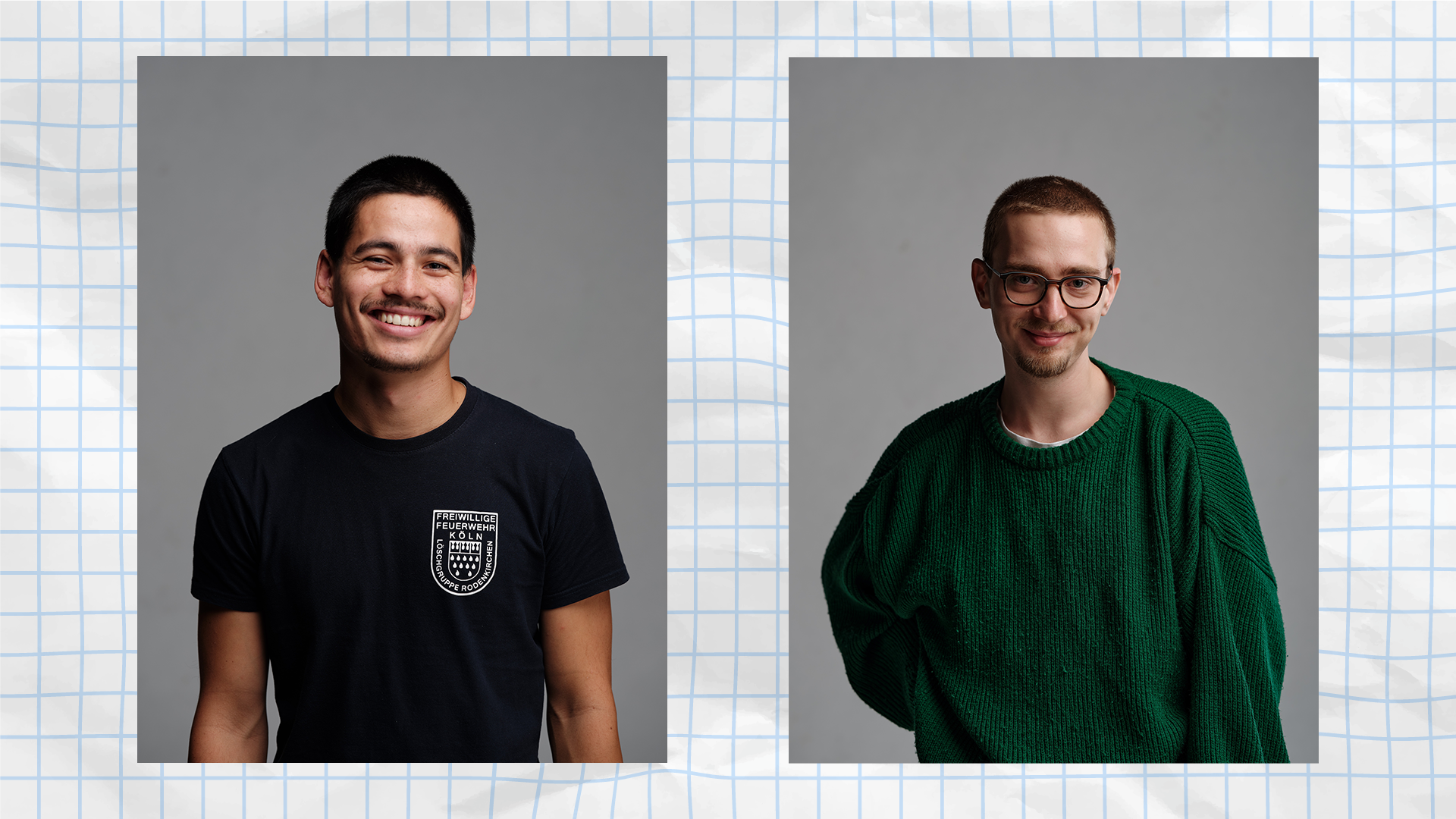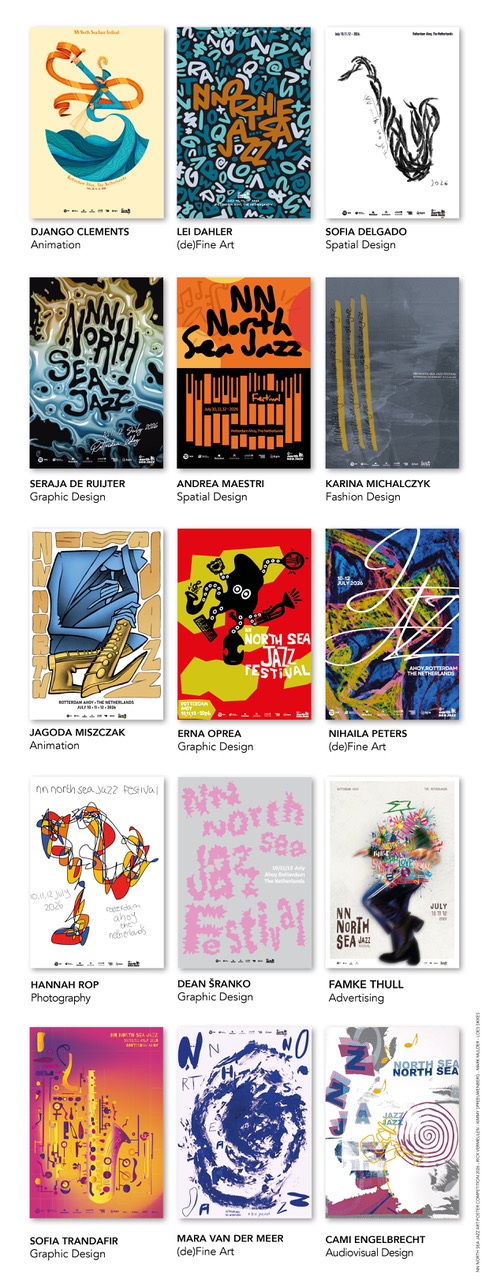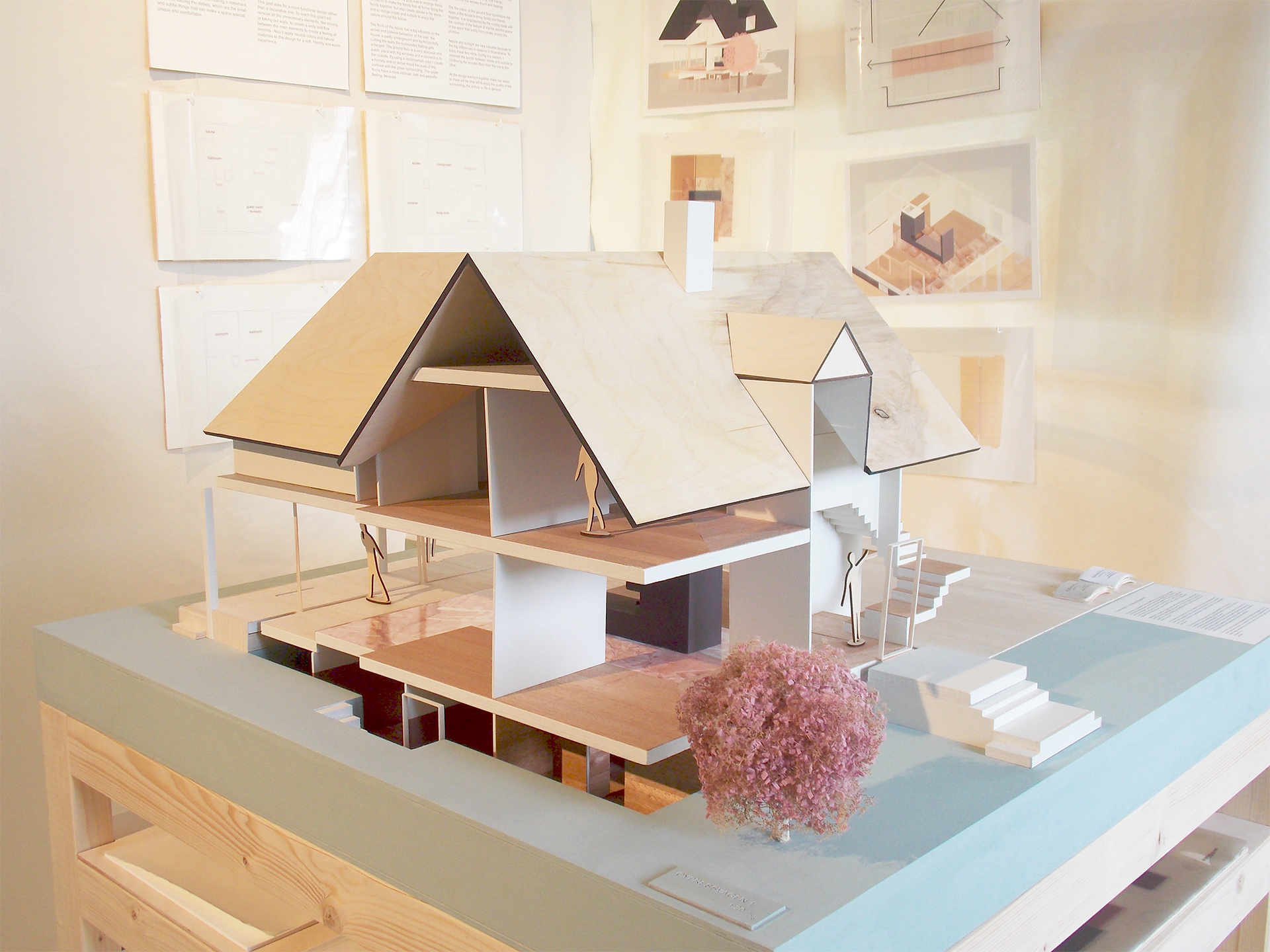
How did you end up at WdKA?
I studied packaging design at a vocational high school in Serbia. Afterward, I was eager to go abroad and explore graphic design. I heard that the Netherlands was the ideal place for it. A friend of mine had already moved there a year earlier to study fashion design at WdKA, and their positive feedback convinced me to apply and move to Rotterdam. Although my prior knowledge was useful, Serbian design culture differed significantly, especially in terms of technology and teaching methods.
How did you experience your time at WdKA?
Initially, I was somewhat apprehensive about working with technology due to my lack of experience. However, the change was refreshing. The teachers at WdKA adopted a gentler pedagogical approach, providing positive affirmation and constructive feedback, which was a stark contrast to the harsh critique I was accustomed to. In my first year, I explored various aspects of design. However, the COVID-19 pandemic hit in my second year, forcing a shift to online and hybrid events. As a student assistant at the Research Station, I organized online research and pop culture events, which influenced the digital aspect of my work. The Honors practice pushed me to delve deeper into connecting theory with the practical aspect of my work. Additionally, my internship at Studio ARK, Atelier Roosje Klap, further engaged me in collaborative practices and the exploration of media design and theory, focusing on the impact of media on our lives.
What position does design have in your life?
Design has been a part of my life since childhood when I began drawing and writing. As I grew, I became fascinated with how visuals and text could come together in different forms, such as comics. And how these different mediums inform us about visual and textual literacy. Design allows for the exploration of how different mediums intertwine and tell nuanced stories.
What was your graduation project about?
My graduation project examined archival practice(s) and memory during times of conflict. It is a digital environment that exists online, featuring memory rooms of individuals I interviewed—family, friends, and neighbors—who shared their experiences of the NATO bombing of Yugoslavia in 1999. The platform is the result of this research and serves as an approach to archiving that is informed by oral history. The project aims to raise awareness about the co-opting and manipulation of archives to construct a broader narrative about nations or specific times. I wanted to emphasize the need for nuance and question the standardized approaches used, as they can be potentially harmful. Forgetting is also a facet of memory, and it acknowledges that not everything needs to be preserved. Memories evolve, shift, and change each time they are retold, making them dynamic and not static.
What did the research award mean to you?
I was pleasantly surprised to receive the research award. It was an unexpected honor, and it provided financial support to continue working on the project. The version showcased at the graduation show was a demo with 4 memory rooms, as it was impossible to display the entirety of the project. I have since worked on the final version for future exhibitions and prepared an essay for publication. Research is an ongoing process, and there is always more to explore.
Did you experience a sense of uncertainty after graduation?
After graduating, I did not experience a prolonged period of uncertainty because I continued working as a research instructor. However, there was undoubtedly a feeling of "Oh my god, there are so many possible roads to take."in terms of my practice. Fortunately, my practice is largely collaborative, so I am not alone in navigating this post-graduation phase. I have been involved in various projects with different people, including the studio where I interned. As a researcher and media designer, I worked on projects like "LAWKI" (Life as We Know It), which examines life during COVID-19 and combines human and AI input. Working with a team of seven diverse individuals on this project was amazing. In addition to my collaborative work, I also engage in teaching, providing workshops, consultations, and supporting students with research-related questions or projects. Being part of this exchange and witnessing the development of others is a privilege that I value.
What defines you as a designer?
Research is the foundation of everything I do as a designer. I prefer to be involved in projects where I can approach topics in an informed manner. I explore mixing different mediums and consider the literacy we have in regard to those mediums. Archives also play a consistent role in my work, and they are often intertwined with my exploration of hybridity and collective knowledge.
What are your dreams for the future?
In September, I plan to embark on experimental publishing at PZI (Piet Zwart Institute). I want to further explore the concept of hybrid publications and what they mean for the future of design. It's an exciting direction to take and offers new possibilities for creative expression.
What was the most valuable thing about your time at the academy?
The friendships I formed during my time at WdKA are the most valuable aspect for me. The connections and enriching experiences shared with like-minded individuals are and invaluable source of learning. These friendships have continued beyond graduation, and I still collaborate with many of them on various projects.
What advice would you like to give to current WdKA students?
I would advise current WdKA students not to be overly concerned about the job market while studying. Instead, fully explore your interests and delve into what truly captivates you. Understand why certain topics resonate with you and how you, as a human being, are engaged with the world. This is a moment of exploration and learning, so embrace the diversity of currents and learn from different perspectives!
To learn more about Senka Milutinović's work, visit their website.


